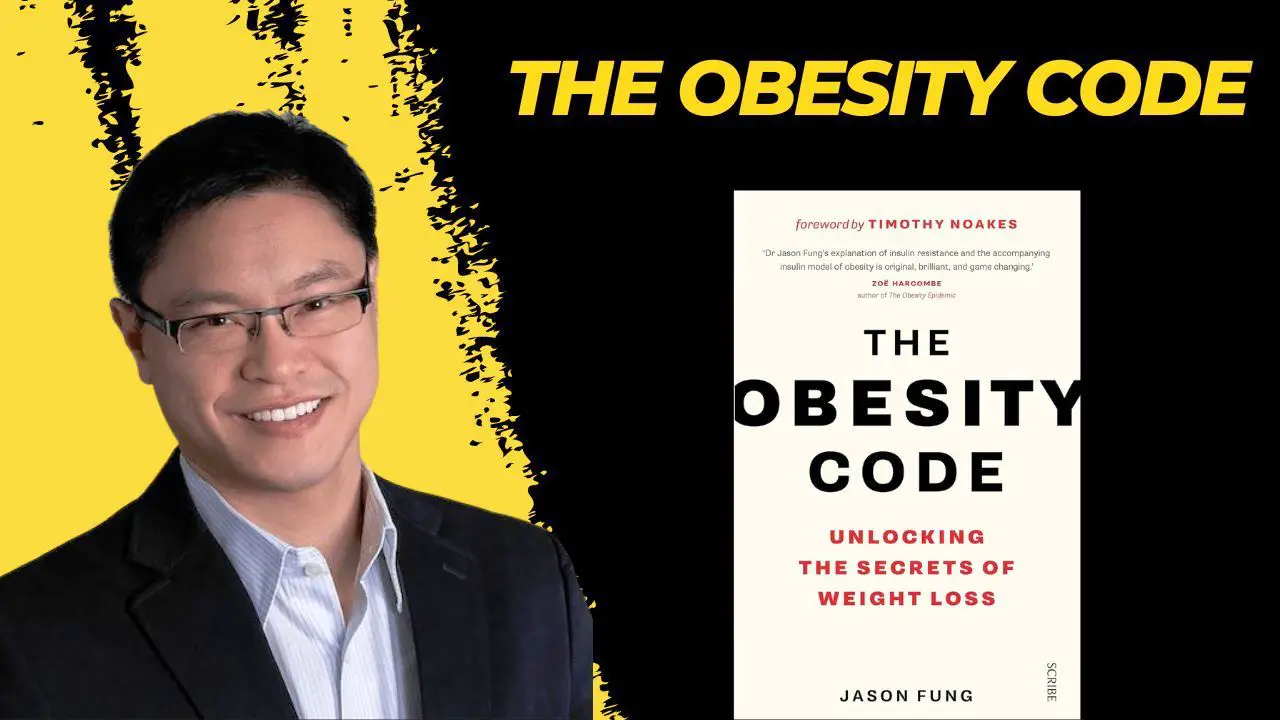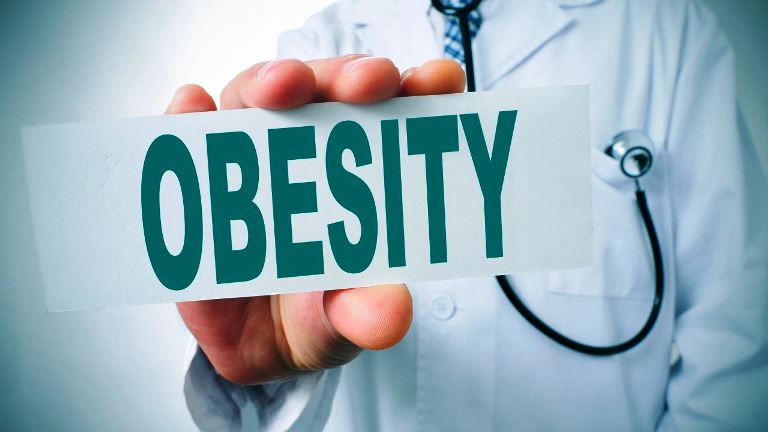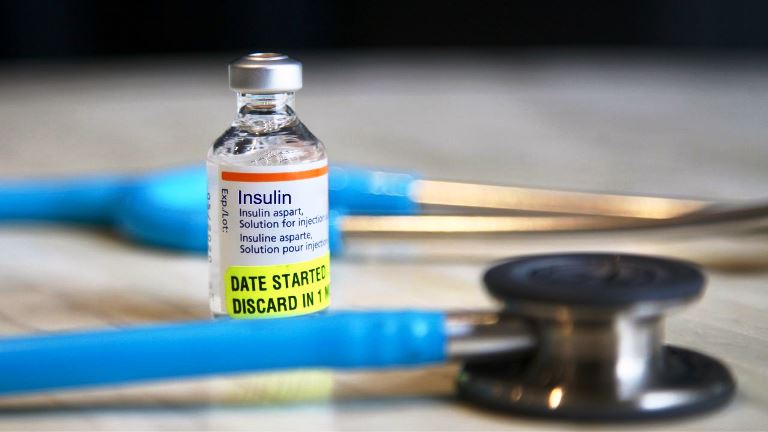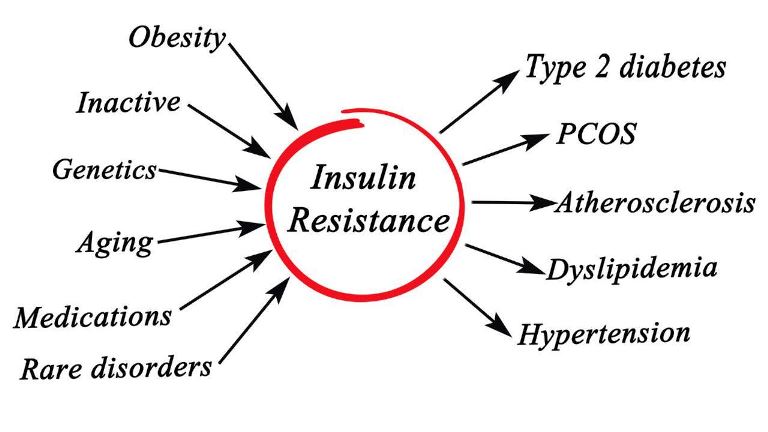The rising rates of obesity are a major health crisis around the world. If you’re struggling to lose weight, it might feel as if all hope is lost.
But Dr. Jason Fung’s book, “The Obesity Code,” offers a groundbreaking perspective on weight loss.
Dr. Fung sheds new light on how hormones are linked to healthy eating and weight loss. He focuses on the hormone insulin and how it appears to be the key to controlling metabolism. We can become fat because of our insulin resistance.
His research points to a surprising culprit and offers a clear, actionable path to reversing obesity.
If you are ready to reclaim your health and lose weight, this blog summary is for you.

Part One: The Epidemic
Doctors know a lot about health, but some are overweight, too. If losing weight was just about “eat less, move more,” why wouldn’t doctors – who are super smart and hardworking – be able to do it?
The author thinks this means our ideas about weight loss are wrong.
He compares it to other problems: Telling an alcoholic to “stop drinking” isn’t helpful; the real solution is figuring out why they drink too much.
It’s the same with weight gain – is it just our choices, or is something deeper going on? This is important because thinking it’s all about willpower leads to people being blamed, not helped.
How Obesity Became An Epidemic
Obesity is an ever-present epidemic.
It wasn’t a scientific decision, but a politician named George McGovern decided what Americans should eat. In 1977, he held a meeting like a modern-day food court and boom! Dietary fat was guilty, making us fat and sick.
The government – and groups like the American Heart Association – preached this new gospel: low-fat everything and mountains of bread, pasta, and even soda (what?).
Forget the old ways of eating; forget what made sense. Sugar got a pass, but yummy things like eggs suddenly turned bad.
- So, what did good citizens do?
Follow orders. Choked down low-fat garbage while sugar crept into everything on the shelves.
- Guess what happened?
Heart disease didn’t vanish. Instead, start gaining weight. The obesity crisis exploded. Nobody had actually tested this low-fat stuff before making it the law of the land.

Inheriting Obesity
Back in the ’70s, scientists tried pinning obesity on our ancestors. The “Thrifty Gene Hypothesis” went like this: Cavemen’s life was tough, and food was scarce, so our bodies evolved to store every calorie as fat.
- This thrifty gene helped us survive famines, but now, with food everywhere, it makes us fat. Sounds good, doesn’t it?
Wrong. Here’s why it’s nonsense.
- Fat = Slow: Being fat isn’t a superpower in the wild. It’s a death sentence. Chubby zebras make easy lion snacks. Fat lions couldn’t hunt. There’s no “survival of the fattest”.
- Famines Weren’t the Norm: Even ancient peoples often had plenty to eat. Obesity still didn’t exist until recently.
- Mice vs. Men: When rats find extra food, their population explodes. They don’t all turn into giant, unhealthy blobs. Our bodies weren’t meant for that.
Part Two: The Calorie Deception
The Calorie-Reduction Error
According to Dr. Fung, most doctors and dieticians recommend eating fewer calories and burning even more calories to lose weight. These calories come from eating things. A calorie is a unit of energy determined by burning food in a laboratory and evaluating the amount of heat released.
Doctors, diet gurus, everyone preaches “calories in, calories out.” But here’s the ugly truth they hide: it doesn’t work.
- Eating less DOES NOT WORK long term. It’s a proven failure, and they won’t admit it. Why?
Because they want you to keep failing and keep buying their pills and programs with false promises.

The Exercise Myth
Think of diet as the star of the weight-loss show, while exercise plays a supporting role. Exercise is often portrayed as a solution to obesity, but the truth is that it does not burn enough calories to make a significant difference.
- Our sneaky bodies find ways to undo our workouts by forcing us to eat more or move less the rest of the day.
- If we want real change, it’s time to give diet the spotlight it deserves.
The Overfeeding Paradox
- Imagine you believe eating too much is the sole cause of obesity. It makes sense, right?
But what if experiments proved that wrong? Scientist Ethan Sims was determined to test this idea. He tried to force-feed mice and college students but found they wouldn’t gain weight no matter how hard he tried. To his surprise, their bodies naturally boosted their metabolism and burned the extra calories!
Then, even more shocking, Dr. Sims overfed prisoners under strict observation. Despite consuming thousands of surplus calories, they gained significantly less weight than expected, and their bodies again fought back, burning off the excess. When the study ended, the prisoners effortlessly returned to their original weight.
These studies challenged the entire calories in, calories out theory of weight gain.
Instead, they revealed the concept of the “body set weight” – like an internal thermostat, your body fights to maintain.
If you try to lose weight by dieting, your body slows its metabolism in a desperate attempt to regain the lost weight. This explains why diets so often fail. What Makes Us Fat, Then?
The real question isn’t why we overeat but why our body’s weight thermostat is set too high in the first place. Think about it – getting fat makes us overeat, not the other way around.
Therefore, the key to lasting weight change isn’t endless dieting but finding a way to adjust that internal thermostat.
Part Three: A New Model Of Obesity
A New Hope
- If calories aren’t the cause, then what is?
This quest has turned up many possible factors: insulin, cortisol, gut bacteria, and more. But none alone seems like the sole cause. It’s like heart disease – many things can raise your risk.
The problem is that most studies on obesity are too short. Obesity takes decades to develop, so research needs to reflect that timescale.
- The new theory
Obesity is about hormones, not just calories. Think of your body like a thermostat, holding a “set weight.” If you eat less, your body fights to regain that set weight.
But what makes our “thermostat” stuck high? Scientists turned their focus to hormones that manage fat storage and appetite.
Insulin
Insulin is key to energy. It tells the body to store sugar and fat. When we eat, insulin goes up, storing energy. When we fast, it goes down, releasing stored energy.
Think of it like wallets and banks:
- Glycogen (sugar stores): The wallet is easily accessed but has limited space.
- Fat Stores: The bank is harder to access but has unlimited storage space.
To burn fat (access the bank), your glycogen (wallet) needs to be low. But our bodies don’t like being low on, either! So, if you’re constantly refilling the sugar stores, you never really tap into the fat.
Insulin is like a master key to your body’s cells. When it’s released (mostly after eating carbs), it tells cells to grab glucose (sugar) from your blood. Insulin helps this glucose become glycogen in the liver or fuels your body directly. If your glycogen stores are full, excess glucose gets turned into fat.
Scientists realized something about obese people – they not only have higher insulin levels in general, but their bodies pump out extra insulin even after a small meal. This makes it harder to burn stored fat for energy.
- The million-dollar question: Does this excess insulin cause weight gain, or is it just a symptom?
Imagine your brain has a “body set weight” thermostat. If insulin is the signal, then constant high insulin might convince the brain’s thermostat to crank up the body’s target weight. The result?
A never-ending cycle of hunger and fat storage.

Cortisol
If insulin makes you fat, cortisol can be the supervillain behind the scenes. Think of cortisol as your body’s alarm system.
Back in the caveman days, “stress” meant running from a tiger. Your body would dump cortisol to make quick energy available, and then you’d either escape or not need the energy anymore.
Today’s stress isn’t a tiger – it’s jobs, relationships, and insufficient sleep. Cortisol floods our system, but we don’t burn it off with intense exercise. Over time, this constant stress raises insulin levels chronically.
Think of it this way: cortisol loads the gun, insulin pulls the trigger.
Stress can make you fat. A chronically stressed body stores weight no matter what, even if you eat or exercise.
Managing stress with tactics like meditation, yoga, or even better sleep can help us break the cortisol-insulin cycle and keep those extra pounds off!

The Atkins Onslaught
Dr. Atkins, a cardiologist struggling with his weight, discovers a dusty old medical theory that fattening carbohydrates, not total calories, causes obesity. He tries this low-carb approach and the weight melts off. Eager to share, he published Dr. Atkins Diet Revolution” in 1972.
Doctors are horrified! Low-carb diets are considered dangerous fads, and high-fat diets will give everyone heart attacks. They still follow the old “calories in vs. calories out” rule, even though obesity is rising.
But Dr. Atkins, with his success and the success of his patients, won’t give up.
Sadly, the victory is short-lived. Impressive results fade with longer studies. People regain weight on Atkins just like any other diet. Why? Because it’s incredibly harsh.
- No cake on birthdays? No ice cream with the kids?
It’s designed for battle, not everyday life. People bail, and Atkins is dismissed again.
The Atkins Diet wasn’t wrong in that carbs spike insulin, and insulin promotes fat storage. The problem was thinking all carbs are equally bad.
Insulin Resistance: The Major Player
Think of your body like a superhero movie. Insulin is a powerful hormone that helps your body use sugar from food for energy. But there’s a bad guy in this story: insulin resistance. It’s like your body has put up a shield against the hero, making it harder for insulin to do its job. This can lead to difficulties like getting overweight and even diabetes.
- Scientists were super confused – why would the body fight against something so important?
It turns out our bodies love to stay the same. Even if that “same” starts to get unhealthy, our bodies will fight to keep things as they are.

The craziest part? Too much insulin can actually make your body resist it even more! It’s like a trap – the more insulin there is, the stronger the shield gets.
Things get even worse with how we eat today. Snacking always keeps insulin levels high. That’s the perfect recipe for insulin resistance to take over.
But good news! We can fight back. Eating three meals a day, the old-fashioned way, gives your body a break from insulin. This helps reset things and makes it harder for the insulin resistance to get stronger.
